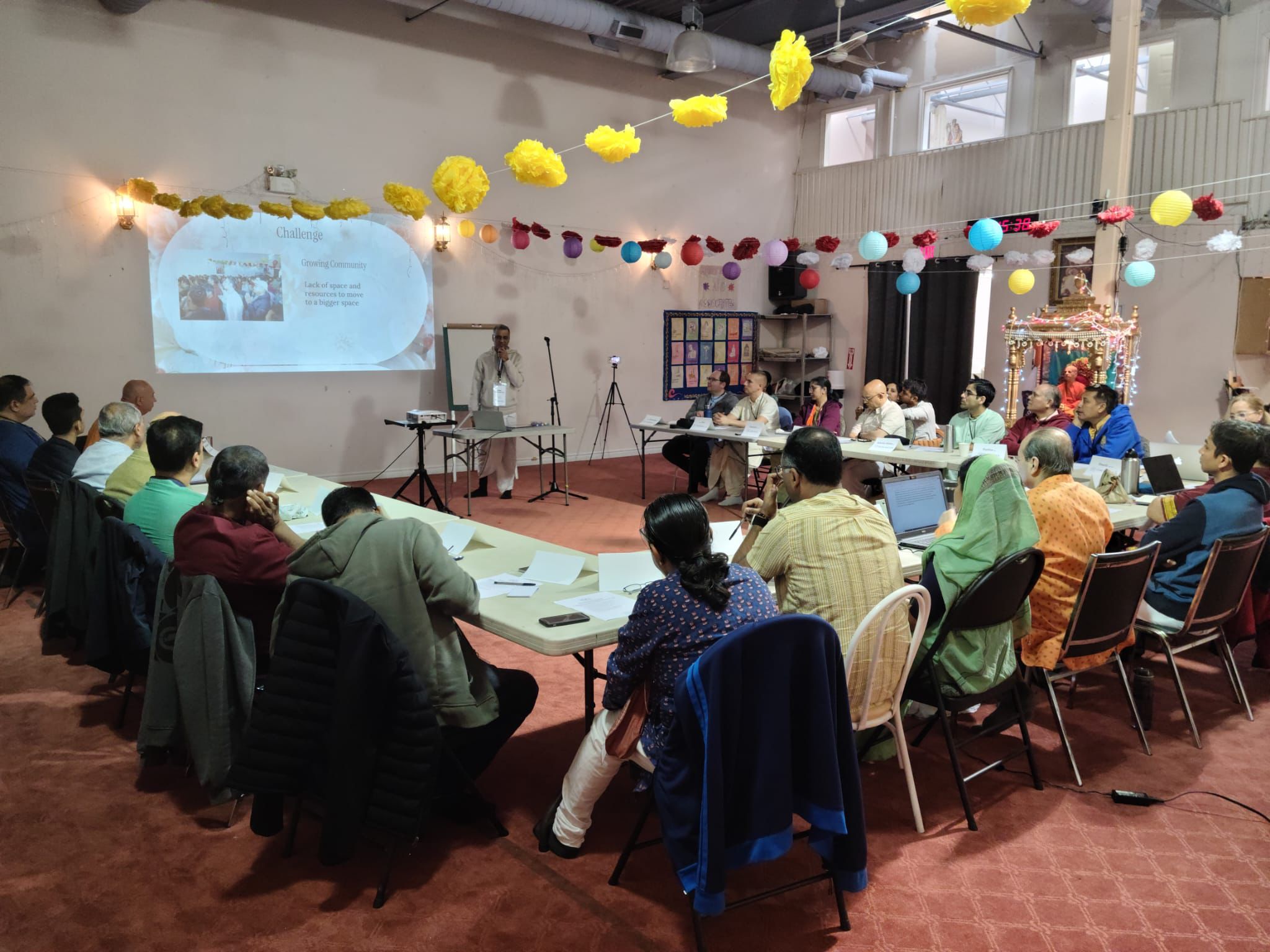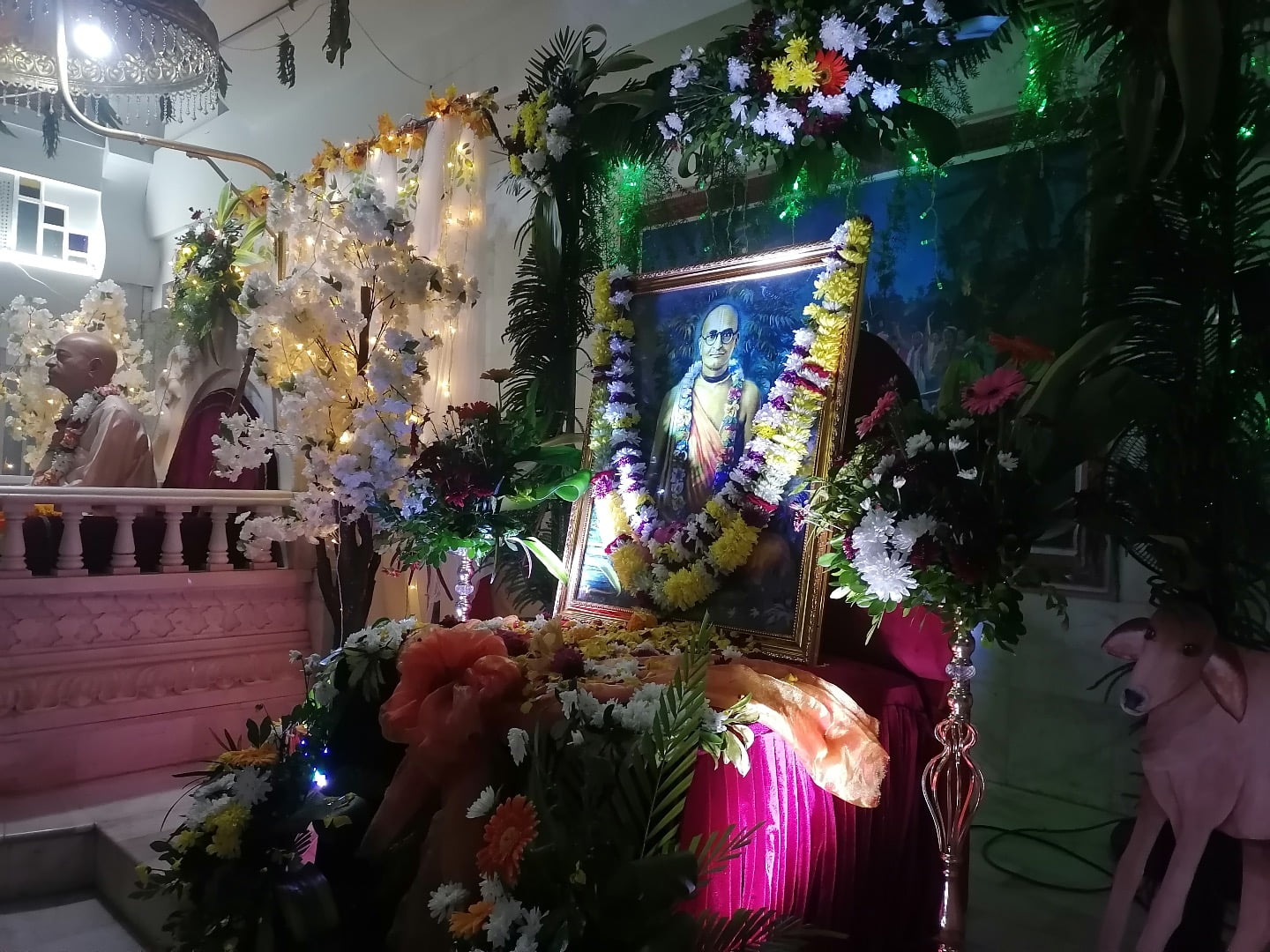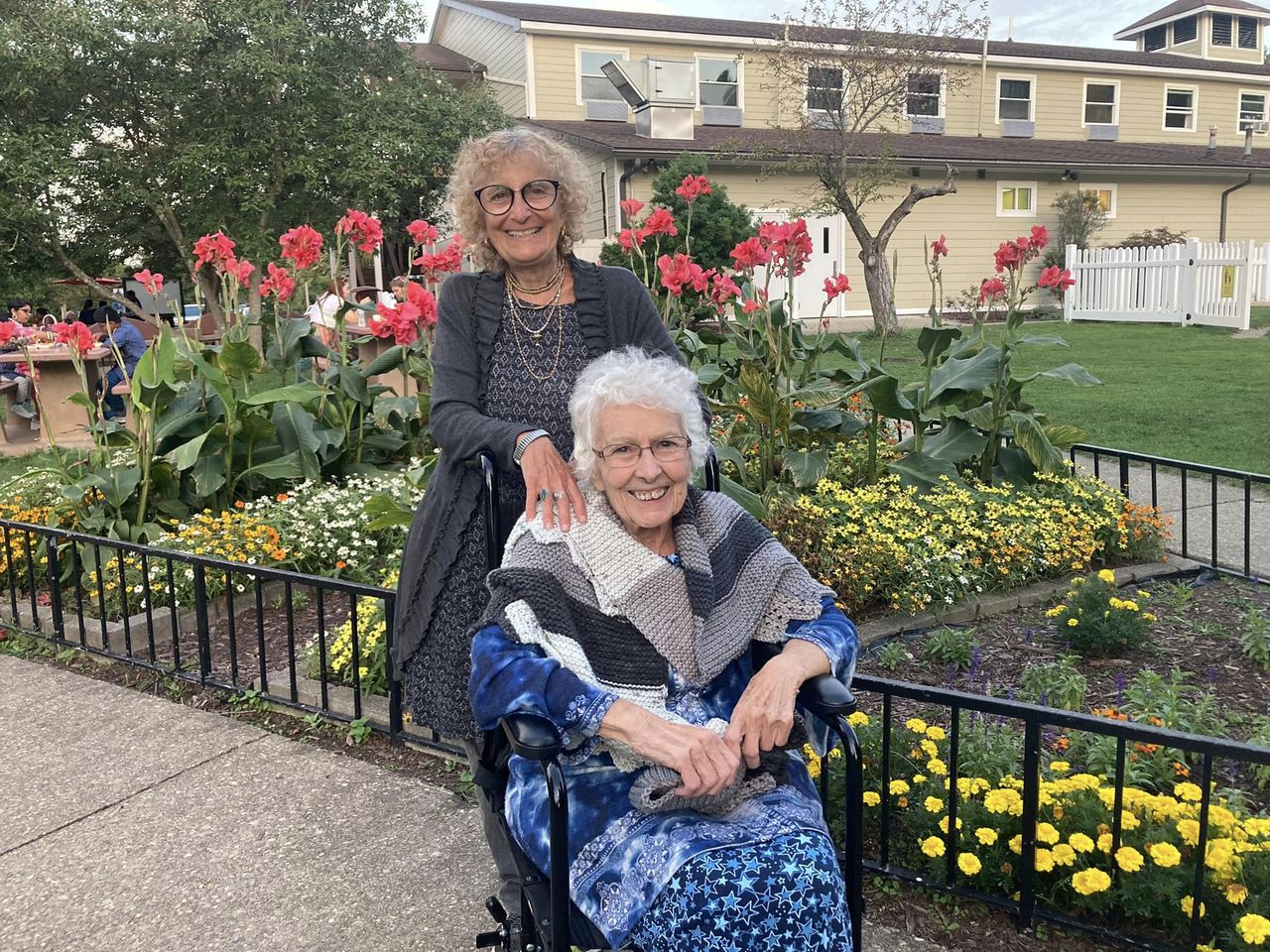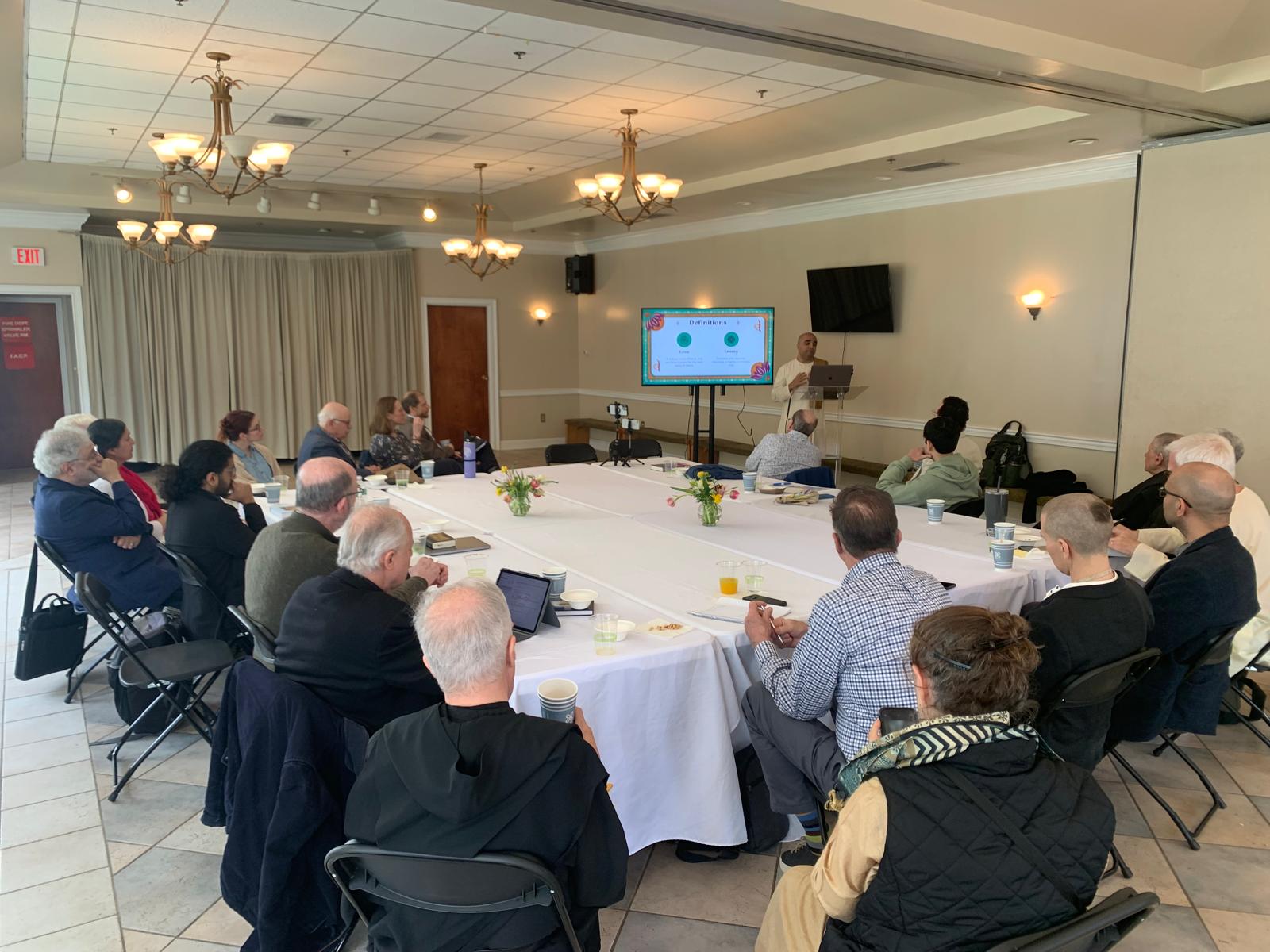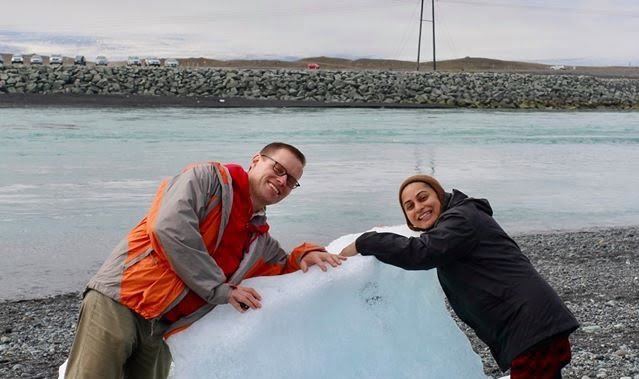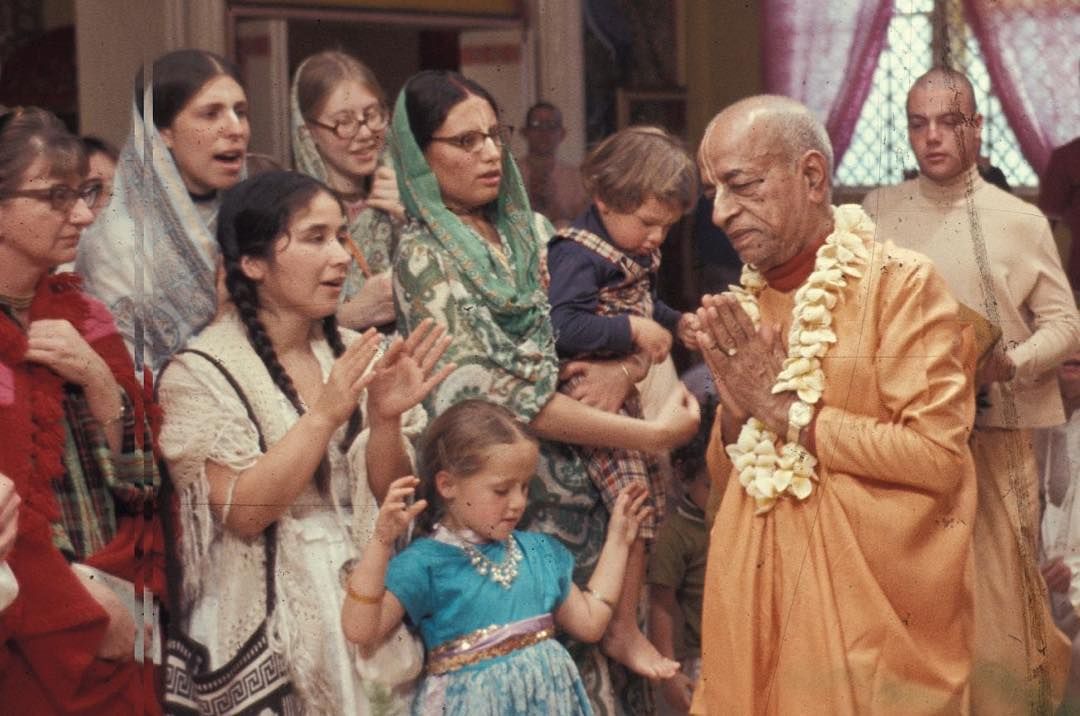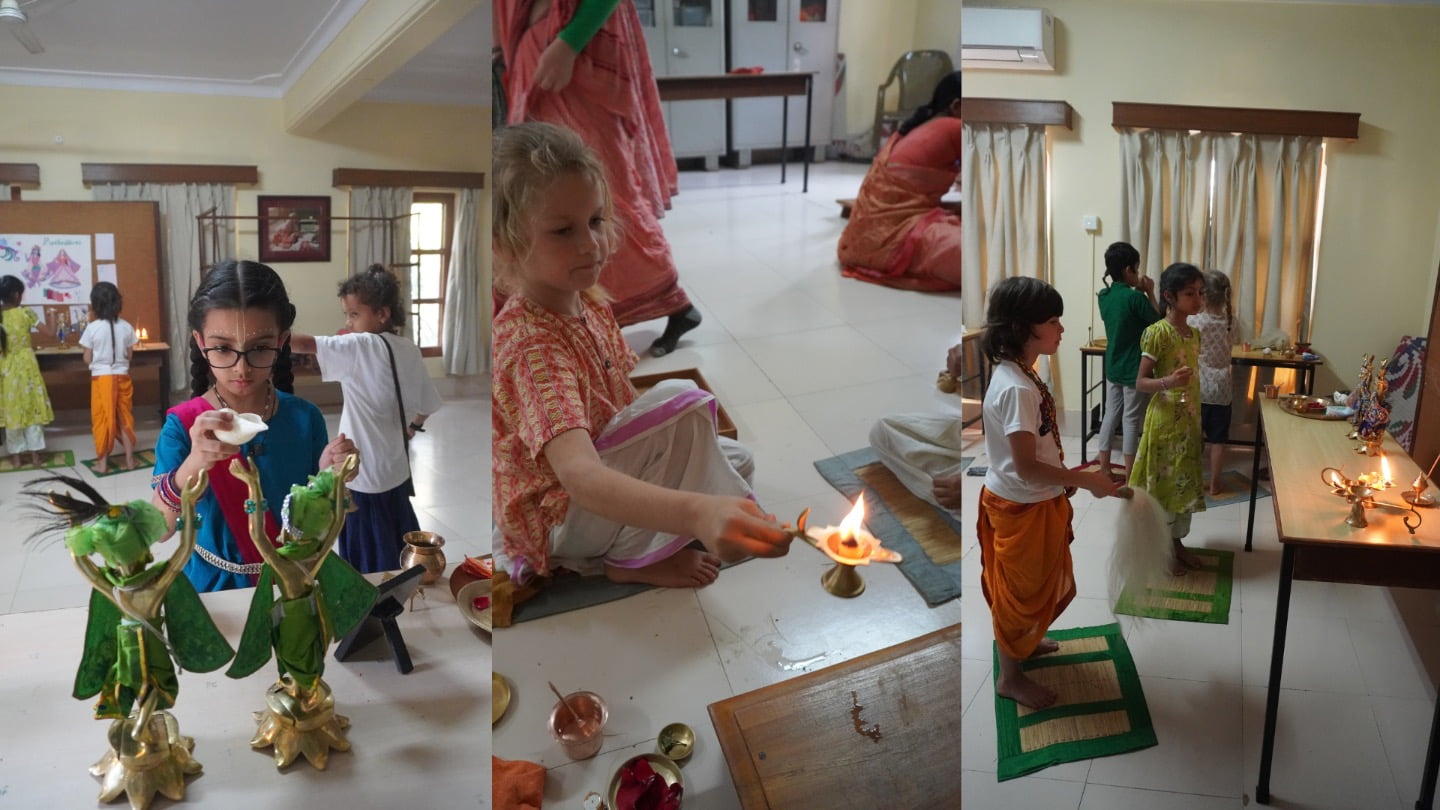Mayapur Tribal Convention Brings Together Tribes From Five Indian States
By Madhava Smullen | Apr 13, 2018
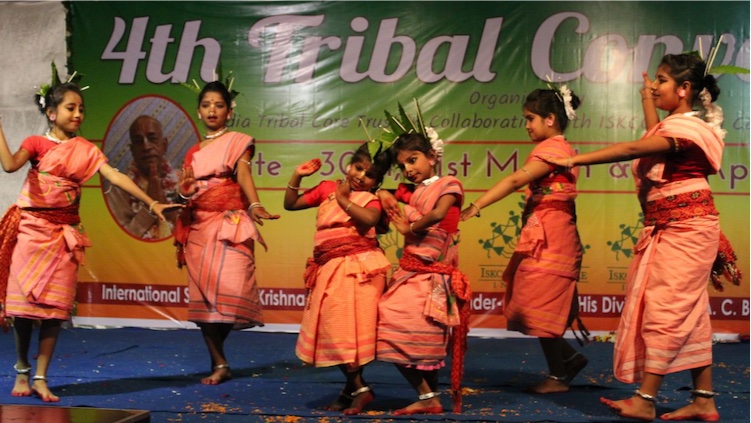
The ISKCON Tribal Care Initiative’s 2018 convention ran from March 30thto April 1stin Mayapur, West Bengal this spring. It drew 2,000 tribespeople from thirteen tribes in five Indian states – each with their own culture, language and dressing style.
Tribes represented included Reang, Tripuri, Halam, Hojang, Bauri, Shanthal, Tea Tribe, Munda, Safahora, Sabar, Karbi, Dimahasao, and Boro.
“We try to bring them all together to celebrate the diversity, learn about each other and share common values with Krishna in the center,” says ISKCON’s convenor of Tribal Outreach in India, Sridham Govinda Das.
Every day, all the tribal people attended the full morning program, followed by Ganga Puja and bathing in the river Ganga. Other morning activities included a visit to Chaitanya Mahaprabhu’s birthplace yogapitha, and an initation ceremony by Tribal Care Initiative national head Bhakti Purusottama Swami of 68 tribespeople.
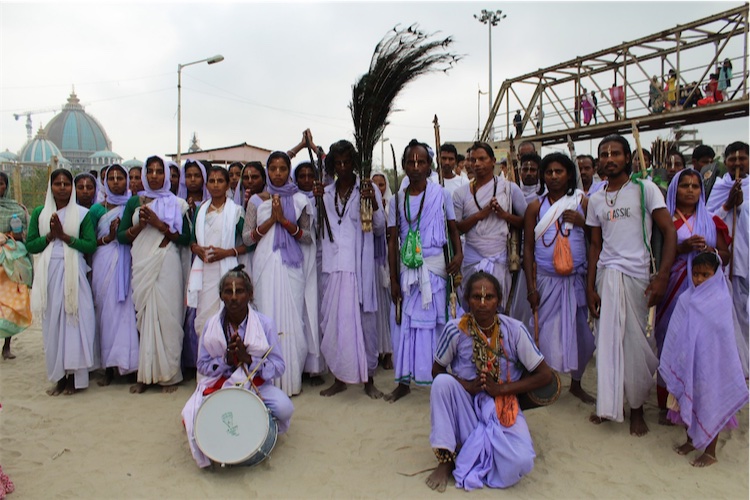
Tribal devotees arrive in Mayapur for the convention, many with bows and arrows on their backs
Next, from 10:30am to 1:00pm there were seminars on a variety of different spiritual and social topics, covering Srila Prabhupada, the philosophy of Krishna consciousness, and ISKCON’s worldwide activities.
There were also more hands-on workshops, like a demonstration in which tribal people from each community shared their arts and crafts with each other, such as how to stitch handmade jute clothing and make decorative household items.
In the evenings, cultural programs were held in a large pandal, with each tribe presenting their own regional dance forms and dramas. Both adults and children performed, each tribe lighting up the stage with their own unique beautiful, colorful outfits, jewelry and percussion instruments.
Meanwhile, a number of VIP politicians gave speeches. On the first day, Amaur Bauri, Minister of Revenue from the Government of Jharkhand, spoke very highly of Srila Prabhupada. He praised the ISKCON founder’s work, appreciating how he took the Krishna consciousness movement from a small following in Bengal and Orissa to a global society.
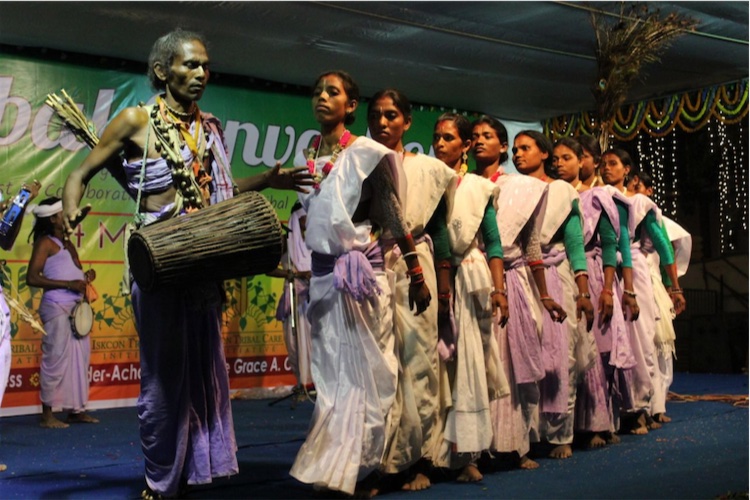
Stage show.
More specifically, he praised the work of the ISKCON Tribal Care Initiative, which provides physical, educational, social, emotional, and spiritual care to twenty-seven different tribes in states like Odisha, Bengal, Assam, Tripura, and Meghalaya.
On the second day of the convention, Mr. Sudarshan Bhagat, Minister of State Tribal Affairs for the Government of India, was also highly appreciative of ISKCON’s work. He requested the Tribal Care Initiative to expand its geographic footprint so that more tribal community members could be benefitted, and stated that his government was ready to offer any support required.
The third evening saw speeches by local leaders from the West Bengal government, such as Ujjal Biswas, Honorable Minister for Jail, and Arindam Bhattacharjee, MLA Santipur.
One major highlight of the pandal cultural evenings was when two men were brought on stage to tell the story of how the ISKCON Tribal Care Initiative had affected them. One was a tribal and former militant who had been waging a war against the State of India. But when he came across devotees preaching in the jungles, he gave up his arms and eventually surrendered to the government. Devotees then helped him reintegrate himself into society.
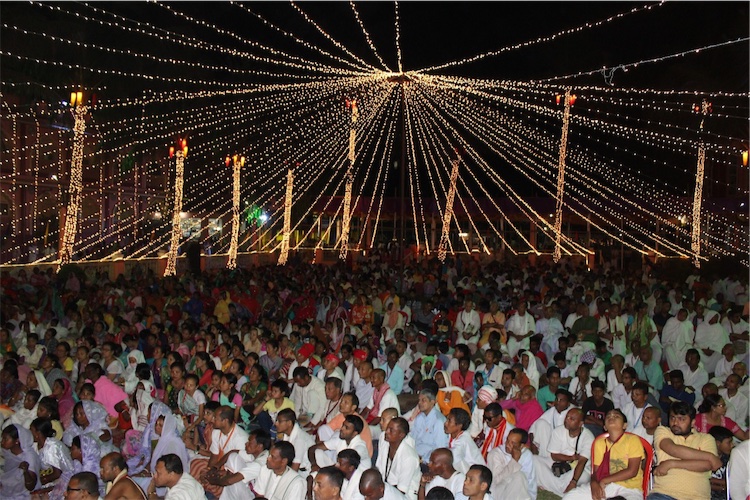
Thousands gathered to see the cultural show
The other man was a local chief of police, whom the ex-militant had befriended and gifted with a Bhagavad-gita As It Is. As a result, the police chief was now also an ISKCON devotee.
Their extraordinary story was just a snapshot of the Tribal Care Initiative’s work – many, many tribal people have taken up chanting the Hare Krishna mantra and following the four regulative principles due to devotees’ efforts.
The Tribal Convention, meanwhile, will keep both preachers and tribal participants enlivened throughout the year.
“It’s a great chance to connect with other tribal communities, and gain a sense of friendship and camaraderie in taking Krishna consciousness to the most remote parts of India,” Sridham Govinda says.



